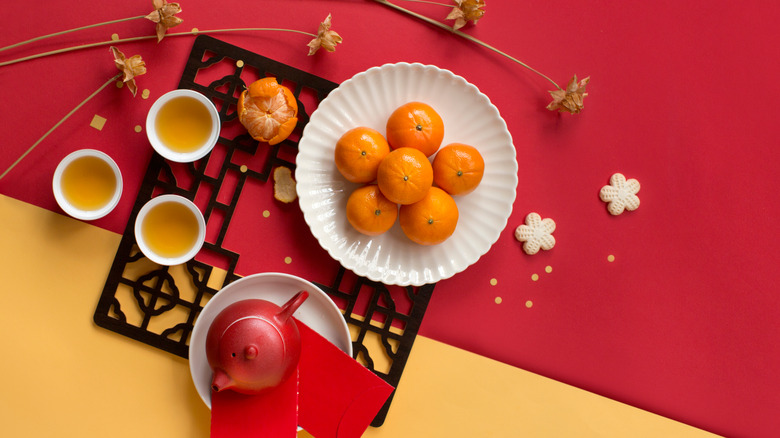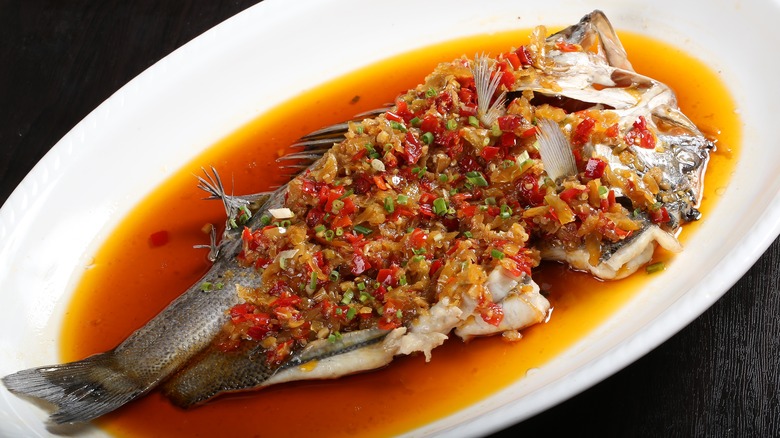The Luckiest Types Of Fish To Serve At Your Lunar New Year Feast
Like other traditional celebrations around the world, Lunar New Year, or the Spring Festival, is a reason for family to get together around a table groaning with food to feast on. The tradition of celebrating Lunar New Year goes back 3,500 years, and marks the end of winter, the beginning of spring, and the start of a new cycle in the Lunar Calendar, per Wake Forest University.
But unlike most traditional celebrations in the west, such as Thanksgiving or Christmas, the Lunar New Year table is full of meaning, and every dish is a play on words or a homograph that sends wishes of wealth, health, family togetherness, and good fortune to everyone who partakes in the meal, per Atlas Obscura. Per China Highlights, spring rolls, which resemble gold bars in both shape and color, are a wish for wealth. Special longevity noodles, which are longer than noodles would normally be, express the hope of a long life.
Shrimp, whose Cantonese name "ha" sounds like a chuckle, has become a symbol of happiness. Dumplings, which can be made in the distinctive boat shape of Chinese silver nuggets are a symbol of wealth. Glutinous rice cake, whose Chinese name is a homograph for "higher year by year" symbolises aspirations for more income or a higher position. Oranges and tangerines represent wishes for luck and success. And fish, which has a place of honor at the Lunar New Year banquet table, indicates an abundance of wealth and prosperity.
Only certain kinds of steamed fish are lucky during the Lunar New Year dinner
But not any fish will do, even though the Chinese word for fish is a homograph for the word "surplus," per China Highlights. Highly favored are two species of carp: the crucian carp or "jiyu," which is considered to bring good luck, and the Chinese mud carp, whose name sounds identical to the Chinese word for gift, or "liyu." Also valued: catfish, or "nianyu," is a wish for a year of abundance. All are steamed and served whole.
An Yan, China program director for the Marine Stewardship Council, says that serving a whole fish at the New Year's Eve dinner has a special significance. A whole fish "reflects the idea of carrying something through from beginning to end and augurs a successful completion of the year. So it is very important to cook the whole fish without cutting or chopping it," she explained on the nonprofit's website.
Both Yan and China Highlights say it is also common in some parts of China to prepare two whole fish — one to be eaten, and the other to be saved. And that's not the only rule involving the serving of fish during this important occasion. Yan says fish is served in a particular way during the Lunar New Year feast: with its head facing either honored guests or senior members of the family. "This indicates that they are invited to eat first," she said, via the Marine Stewardship Council.

